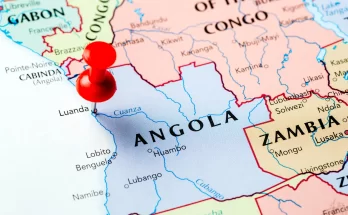Consumers are highly considered in Rwanda’s VAT reform
As part of efforts to maximize Value Added Tax, VAT in Rwanda has taken a new turn through the proposal of a tax bill that aims to give a share of the VAT generated to consumers.
VAT is a consumption tax on goods and services that is charged at each stage of the supply chain where value is added, from preliminary production to the point of sale.
According to MP Jean-Damascène Murara, some traders sell products but do not issue receipts to buyers, which impedes VAT collection as their refusal to issue receipts leads to a loss of VAT revenue.
To tackle this issue, the Rwanda Revenue Authority (RRA) has proposed a bill that will deposit a share of the 18% value-added tax charged on taxable goods and services.
This was recently revealed during a public hearing in which RRA officials were appearing before the Parliament’s Public Accounts Committee (PAC) to explain the public funds’ mismanagement cases raised by the Auditor General’s report for the fiscal year 2020-2021.
According to RRA Commissioner General, Pascal Bizimana Ruganintwali, this move will motivate people to demand electronic receipts issued by the electronic billing machine (EBM), thereby maximizing VAT collection.
He said that the goal is to ensure that when a consumer buys a product and a VAT of 18% is charged, they will get a percentage share of that rate, which will be directly deposited into their bank account or EjoHeza (long-term savings scheme) account.
He mentioned that the draft tax law was agreed on by RRA and the Ministry of Finance and Economic Planning, noting that it is awaiting approval from other entities, and hoping that it gets legislated within this financial year and starts being enforced in the subsequent fiscal year.
The sole purpose of the EBM system is to facilitate tax collection with electronic receipts that assist revenue collectors to monitor businesses’ sales and how much tax they have to pay.
VAT in Rwanda: Increasing Tax Revenue and Consumers’ Savings
Since consumers now realize that they will be getting a share of the VAT percentage, the criminal practice of traders issuing receipts with lower prices compared to the money they collected for the purchased products will diminish.
With this initiative, buyers will always ensure to collect receipts that accurately depict the number of products purchased and this will ultimately lead to a significant increase in both the VAT and income tax.
According to Ruganintwali, there is a system in place where people can register (to open an account) and put in the number of their receipts. The system then calculates the amount of money they should receive and deposits it into their bank or mobile money account.
He mentioned that VAT accounts for 34% of the total tax collection in Rwanda.
According to statistics from RRA, Rwanda generated total tax revenues that added up to over Rwf1,635 billion in the 2020-2021 fiscal year.
It should be noted that, in the past, a similar initiative has been proposed by MP Théogène Munyangeyo, Chairperson of the Committee on Economy and Trade at the Chamber of Deputies, as he explained that this will aid tax collection while simultaneously promoting a savings culture among Rwandans.
Speaking on RRA’s plan, Munyangeyo corroborated that this plan will correct consumers’ carefree attitude regarding the request of receipts when they purchase any product, as they will be aware of the benefit of asking for receipts.


